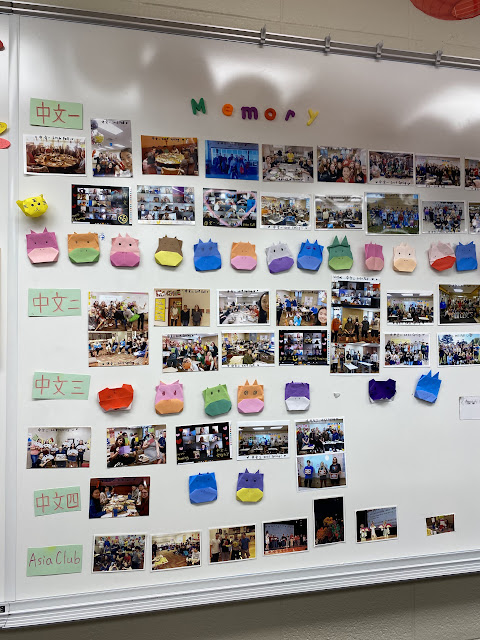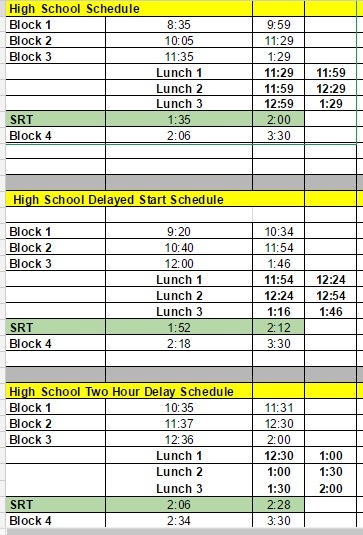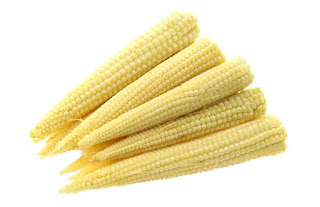Student Athletes vs. 學霸(Xuébà)
Every new semester, while I welcomed a new group of students into my life, I've always had this question in my mind. If I grew up here in America, which type of students would I have become?
This question seems simple, but the answer is actually way more complicated. Just like sometimes meanings can get lost in translation, there is also no simple way to translate the types of students from one culture to another. The more I thought about this question, the more I realized how different cultures can hold values that are remotely close to each other.
"I am so athletic!"
In American culture, "student athlete" is such a proud term. They are the ones that get recognized at the pep rally. They are the ones that bring honor to the school when they win state level games or competitions. The dance teams are upset because they are not treated as "athletes." There is a whole department called "athletic department." Lots of students' dreams are to get accepted into a sports team. Parents would consider transferring their kids to a smaller school so that it's easier for them to get admitted into a sports team. I've heard students shouting out so proudly when they caught a ball, "I am so athletic!"
Well, of course there are also student athletes back in Taiwan. However, the expectations and values behind this term are far from what they are in American culture.
This does not apply to all the high schools in Taiwan, but for some schools, all the student athletes would be grouped together in an "athlete class(體育班 tǐyù bān)." They have schedules that are different from regular students, and are mainly designed to give them more time for their sports practice and training. Now, if my friends tell me they are going to teach the "athlete class," I might gasp first and all I can only say would be, "Good luck." Besides the smell of sweat awaits teachers everyday, they are going to step into a classroom where the students probably nap the whole time no matter how enthusiastic the teachers are because they are so tired from their sports practice and also they just don't care as much about other academic subjects.
Unlike in America where you need to maintain a certain grade level that's high enough to get into the sports team, in Taiwan, when you are in the athlete class, that means you don't have to worry as much about other academic subjects. There is a totally different route for these student athletes to get into colleges that subjects like math or science wouldn't weigh as much.
Thus, some students join this athlete class simply because they are so talented about a certain sport. But some other students might have joined the class because they have given up on academic performance, either by themselves, or by their parents and teachers. Sports is the alternative solution that they had to resort to in order to find better opportunities for the future.
It might be a stereotype, and I'm not saying that it's right, but there is a common saying in Mandarin that describes people "頭腦簡單,四肢發達(Tóunǎo jiǎndān, sìzhī fādá)" which through direct translation means "simple brain, active limb." It is believed that if some people are very athletic, they are less likely to be as smart at the same time.
Then what brings a school honor in Taiwan?
學霸(Xuébà)
Every year around early summer time, high schools in Taiwan will post lists of students who get accepted into the top universities. The longer the list of students that are going to top universities, the more renowned the high schools would be. To help you understand, you can imagine high schools here publishing on their front webpage a list of numbers and names of students that are going to Purdue or IU or some other schools. And that's how people judge if it's a good high school in Indiana or not. It really is "the more the merrier."
How culture in Taiwan values academic performance can be reflected on this term "學霸(xuébà)." People started to use this slang word probably within the past ten years. It describes a type of student that lots of people in Chinese speaking cultures long for themselves to become. It shares the same pride that "student athletes" have in American culture. To simply translate it, "學(xué)" means to learn, and "霸(bà)" means the king or superpower or tyrant of something. So basically, it means "the king of learning." This is a type of student that always gets good grades on their tests and passes their classes with As and goes to top schools.
After searching through my limited knowledge of English language, I cannot quite seem to find an equivalent term for 學霸(xuébà). And I doubt if it exists. "Straight-A students," "nerds," or "geeks" might also describe students that are really intelligent or good at studying or a certain subject, but they just cannot translate that same pride and respect attached to the word.
And that's what I mean by "different cultures hold different values." Athlete students or 學霸(xuébà), there is no better or worse, and there is no right or wrong. It is just different. And why does Chinese speaking culture value academic intelligence so much? This can be a longer and deeper discussion about history, Confucianism, and the social structure and system, ...etc. And why does American culture value athleticism? That, I don't know. But I would love to learn from your theory.
You were born to certain cultures, but you can develop your own values
Growing up in Taiwan I did pretty well in the system. I was good at taking tests and getting As and going to renowned schools. I guess I was a "學霸(xuébà)." Maybe I had the potential of becoming an athlete student. Who knows? I did not explore. I followed the expectations from the society and pursued the route that the culture values.
I guess what I'm trying to say is that the world is big. You might feel pressured to become a student athlete in America and feel like you're a 學霸(xuébà) in the bone, then be brave to be yourself. It's called "nerd" here but it's called "學霸(xuébà)" somewhere. Out there, maybe not that far away, there are some flocks of birds that share the same feathers with you, and value what you have got to offer.
My students came to share with me after their pen pals from Taiwan wrote them back. "Lin Laoshi, both of our pen pals wrote that they don't like to do sports."
I looked at them and smiled, wondering if I should go for the long explanation or the short one.



留言
張貼留言